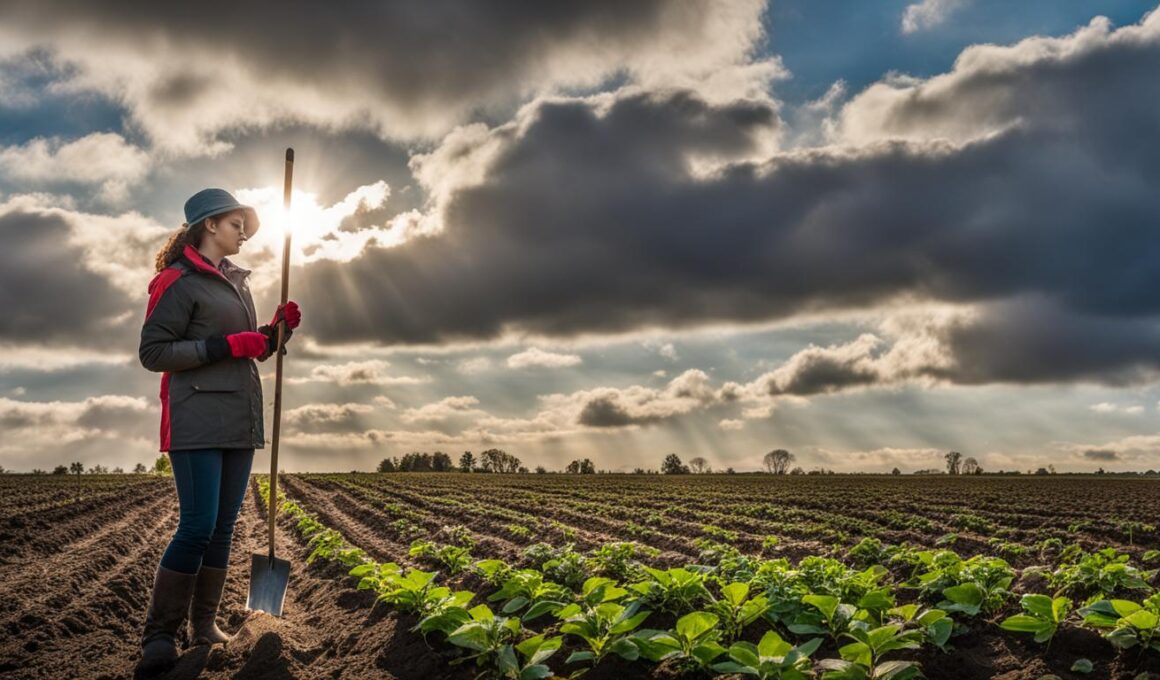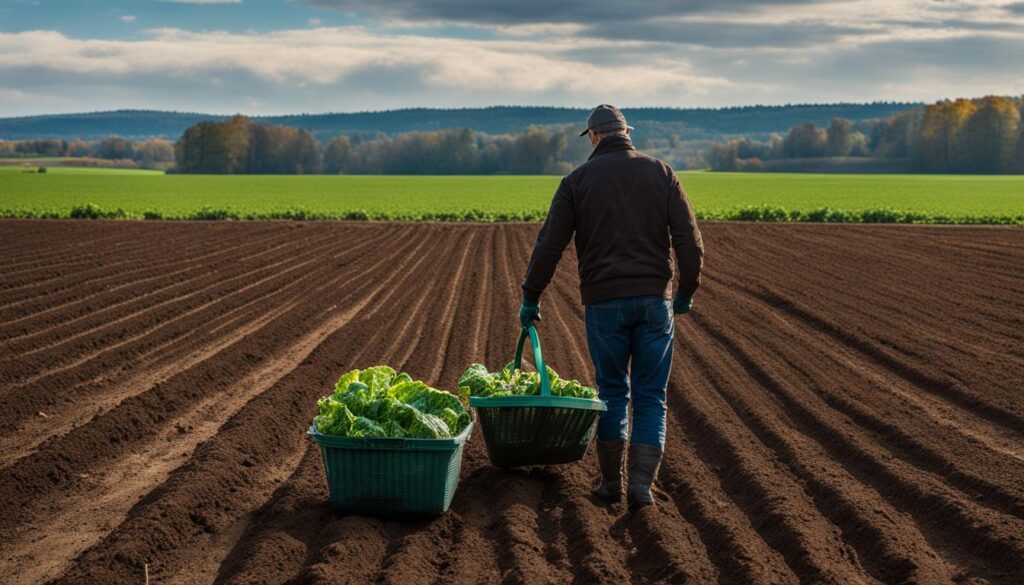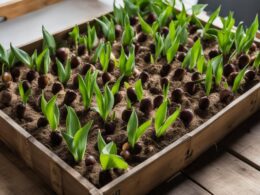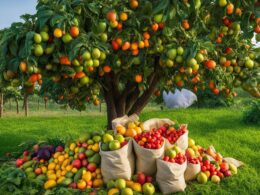Are you ready to take your gardening skills to the next level? If you want to maximize your gardening success and yield, it’s crucial to know the optimal planting days for above-ground crops. Whether you’re a seasoned gardener or a beginner, timing is everything when it comes to planting.
When it comes to planting above-ground crops like tomatoes, peppers, and squash, the lunar cycle can have a significant impact on their growth. That’s why planting during a waxing moon, preferably a waxing crescent, is ideal for these crops. The moonlight during this phase helps plants photosynthesize and grow, resulting in optimal yields and healthier plants.
Creating a planting schedule ahead of time can help you pinpoint the perfect time each month for planting above-ground crops. By aligning your planting days with the moon’s phases, you’ll be setting yourself up for gardening success. Whether you’re planning a small backyard garden or a larger plot, understanding the best planting days for above-ground crops is a game-changer.
So, get your garden tools ready and start planning your planting schedule. With the right timing and a little lunar magic, you’ll be on your way to a bountiful harvest of delicious fresh vegetables.
Planting in Different Seasons
The best time to start planting above ground crops depends on the season. In spring, once the threat of frost has passed, you can start planting cool-season crops like cabbage, broccoli, carrots, and turnips. As the season progresses, you can transition to warm-season crops that take a longer time to mature, such as tomatoes, potatoes, and peppers.
In summer, it is not the ideal time for planting most crops due to the hot soil. However, you can still plant cool-season crops like kale, lettuce, and radishes in late summer.
Fall is similar to spring, with mild weather. It is a good time to plant trees, shrubs, and spring-blooming bulbs. Fast-maturing, cool-season vegetables like lettuce and radishes can also be planted in the fall.
By understanding the planting seasons, you can optimize your gardening success and ensure that your crops thrive in the right conditions.
Tips for Successful Planting
When it comes to gardening, there are a few key tips to keep in mind for successful planting. One of the first things to consider is your specific grow zone and location. Each zone has different planting dates and schedules, which you can easily obtain from your local Extension Office. By following these guidelines, you can ensure that you’re planting at the optimal time for your area, increasing the chances of a successful harvest.
Garden preparation is also crucial for healthy plant growth. Start by amending the soil in your garden beds, adding organic matter to improve its quality and nutrient content. Remove weeds to prevent competition for resources and provide a clean environment for your plants to grow. Composting is another important step to enrich the soil and promote a thriving garden ecosystem. By taking the time to prepare your garden beds, you’ll create the perfect foundation for your plants to thrive.
Another essential aspect of successful planting is starting seeds indoors. This technique is especially useful for starting crops early in the season, giving them a head start before transferring them outdoors. When starting seeds indoors, make sure to provide them with adequate light, moisture, and warmth. This will help them develop strong roots and healthy foliage, ensuring a robust start to your garden.
Lastly, watering efficiently and maintaining your garden tools are crucial for a successful garden. Water your plants consistently, providing them with the right amount of moisture for optimal growth. Avoid overwatering, as it can lead to root rot and other problems. Additionally, keep your garden tools clean and in good condition. Sharp pruners, spades, and other tools will make gardening tasks easier and more efficient.
Remember, different crops thrive during different seasons, so choose your vegetables and herbs wisely for each time of year. By following these gardening tips, you can enjoy year-round gardening and have a bountiful harvest that will make your hard work truly rewarding.
Will Planting Above Ground Crops Affect the Ripening of Blueberries?
Planting above ground crops near blueberry bushes can affect the blueberries ripen timeline calendar. The proximity of certain crops can alter the environment and impact the ripening process of blueberries. It’s important to consider the layout of the garden to ensure optimal growing conditions for the blueberries.










